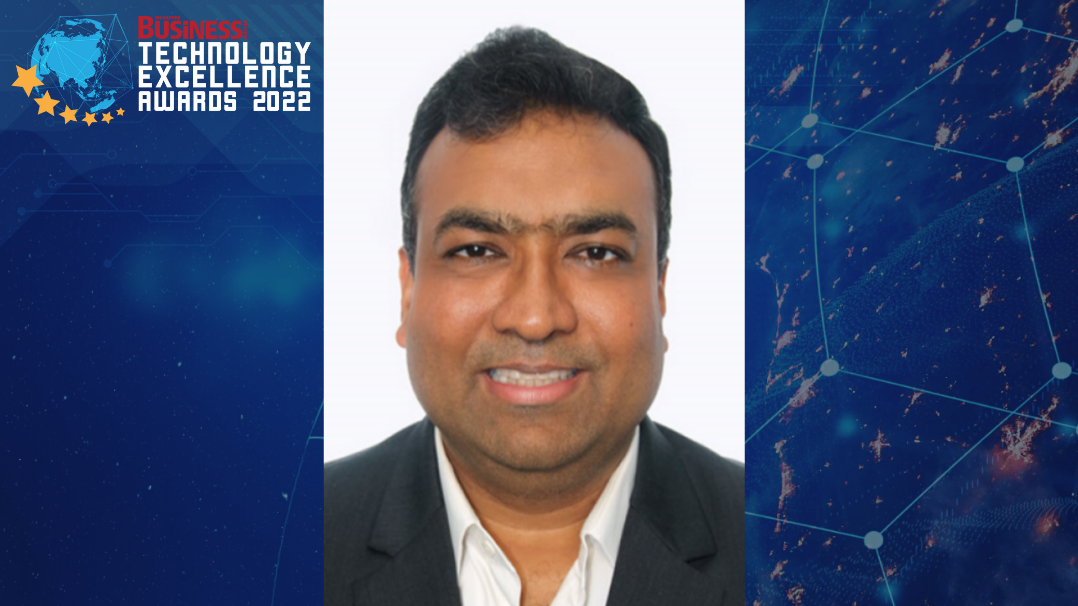
Robotic process automation, data analytics, cloud-based tools boosting efficiency in the finance industry
Collaboration, solution-oriented mindset are key accounting skills to better serve clients.
Sunil Agarwal is a Partner at PwC Singapore, with more than 25 years of experience in providing advisory services to global clients in the Technology, Media and Telecom (TMT) industry.
He specialises in tax restructuring and has assisted multinationals on cross-border issues across the globe. His key experience includes advising companies on restructuring business operations, supply chain restructuring, investment holding and financing structures, and IP structuring.
Sunil has worked extensively with the Economic Development Board of Singapore and International Enterprise Singapore to assist clients in negotiating more favourable tax incentives and grants.
In his capacity as a judge in the Singapore Business Review’s Technology Excellence Awards 2022, Sunil spoke to us about how digitalisation and technologies such as robotic process automation, and cloud-based SaaS tools are improving and supporting the accounting industry, and working in multicultural teams boosts collaboration and insight.
Please tell us more about your role as a Partner in PwC. Coming from an accounting background, how did you veer toward the path of consulting?
I specialise in international tax at PwC Singapore and work closely with several multinational companies in advising them on their business models, investment structures, and financing structures across the Asia Pacific. I also assist my clients in negotiating incentives with the Singapore Economic Development Board (EDB) and help them with dispute resolution across multiple jurisdictions in Asia. I am a Chartered Accountant by profession; however, I enjoy the collaboration and problem solving involved in consulting in terms of working alongside my clients to find unique solutions for the challenges they face. Hence, I believe consulting has been the right choice for me as my career.
For consultants, what skills are most important to have to be able to understand and address clients' needs?
In my view, it’s critical to “put ourselves in the client's shoes” and have a solution-oriented mindset. One needs to listen to the client to understand their needs and then brainstorm and collaborate with them to deliver the project on a timely basis. It is also critical to have a deep understanding of their business model and the challenges they are facing in this complex environment – the solutions have to then be tailored to their business needs rather than employing a “one size fits all” approach.
From your perspective, how can technology/digitisation in Singapore further improve or support the accounting sector?
Digitalisation, Robotic Process Automation (RPA), Optical Character Reading (OCR) and cloud-based SAAS tools should be adopted at a faster scale in the accounting/finance sector. Once such tools are adopted widely across the organisation, it will help with improving the robustness of the process, time efficiencies, reducing the manual work and human error, risk management and thus leading to a better quality of decision making by various stakeholders.
You work amongst multicultural teams across the Asia Pacific, Europe, and the Americas. What is the contribution of diversity in finding technological solutions for clients?
Diversity when devising and implementing technological solutions for clients is of great importance. Given the multinational nature of our clients, their needs can vary as they navigate situations in various geographies. By working with multicultural teams across Asia Pacific, Europe and the Americas, I can effectively collaborate with my colleagues and promote diversity of thought as a key cornerstone of any solution. Everyone has unique backgrounds and experiences that they bring to the table; only by bringing together these diverse perspectives can we create tailored, holistic and impactful solutions for our clients.
What do you think are the recurring themes or trends amongst technology companies in Singapore this year?
Given the pandemic, I think the biggest themes are relating to digitisation, cybersecurity and healthtech solutions. The digitisation mandate has been fast-forwarded by at least 3-5 years and that has created the opportunity for technology companies to come up with effective solutions that will solve the challenges of working from home. As we gradually come out of the pandemic, the trends of improving work productivity and technology tools for augmented reality as well as virtual workspaces should emerge stronger.
As a judge in the SBR Technology Excellence Awards, what projects or innovations are you expecting to find amongst the entries? What are your criteria for judging?
I am expecting to find projects that will change the face of the industry and innovative solutions that will solve the new challenges being faced by mankind. I hope there will be innovations dealing with data privacy, digital solutions relating to ESG (Environment, Sustainability and Governance), quantum computing, predictive analytics and cybersecurity. My key criteria for judging will include various factors such as quality of innovation, sustainability of the idea, speed to market, value delivered to various stakeholders, corporate governance and the expertise that the team brings to the table
























 Advertise
Advertise






